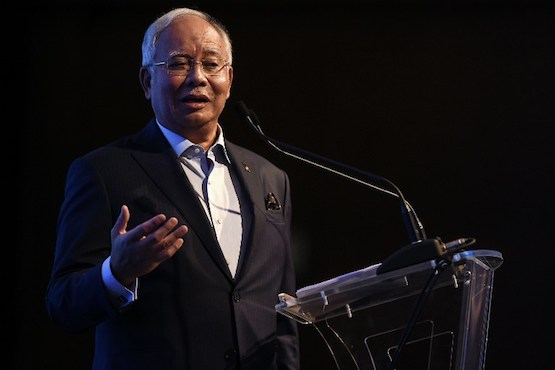Having viewed Prime Minister Datuk Seri Najib Razak since GE13 and during his trip abroad and Opposition Leader Datuk Seri Anwar Ibrahim over the same time, we are again relieved that the rakyat returned Barisan Nasional and Najib to Government. We have seen the difference between Najib’s statesmanship and belief in Malaysia on the one hand, and Anwar’s outrage and belief in himself on the other.
It could not be more glaring.
Heading into GE13, both Najib and Anwar stood as the emblems of their respective coalitions. Najib offered a track record of careful transformation and leadership, of a belief that a Malaysia of all races is preferable to a splintered nation, and of a belief that Malaysia’s model under Barisan Nasional could be and should be a model for other nations.
Anwar offered … not being part of Umno, and the somewhat uncertain claim that he could unite Pakatan Rakyat into a coherent coalition that would bankrupt Malaysia. He also offered his experience as Finance Minister, which has been so compelling that Tun Dr Mahathir Mohamad had to replace him as he drove Malaysia into economic collapse during the Asian Financial Crisis, and no one in Selangor is quite clear about what he does as the state’s economic adviser.
It has not been surprising to see how the two men have handled themselves since the elections – even if, in Anwar’s case, it is somewhat disappointing.
Najib has launched his Cabinet and the Government with reconciliation, transformation, and national unity his slogans. In response to the elections, he has stepped up efforts against crime and corruption, and continues to focus on keeping Malaysia’s economy strong even against growing international headwinds.
When he travelled to Africa, he spoke not of the continent’s many ills, but rather the path forward: through responsible, careful leadership, using technology and good governance to grow. He spoke of Malaysia’s opportunities there – and as importantly, how Malaysia could help, both by example and through direct aid. This is a direct reflection of Najib’s belief that responsive, responsible governments, through careful work, can help to move the world forward.
When he travelled to the UK, he not only continued the same message, but proudly spoke of Malaysia’s present and future. He stood as a contrast to David Cameron, whose every initiative is bogged down in coalition fights and economic malaise. He took part in an interview with BBC, a network known for its favouring of Anwar, and defended Malaysia and his administration from the proxy Pakatan Rakyat criticisms the BBC carried. By the end of his trip, even the BBC was grudgingly offering its praise.
He showed a proud zeal for Malaysia’s achievements, and the bravery to take on an unfriendly audience to share those achievements.
This is what statesmen do. They carry their message, they stand before friendly and unfriendly audiences, and they speak of their homes as places they love.
We have searched in vain for an example of Anwar speaking well of Malaysia to foreign audiences. Instead, a man who was able to call dozens of experts and stall his second sodomy trial dozens of times before being acquitted speaks of a captive judiciary. A man who leads illegal rallies tells of a Malaysia in which any dissent is punished by prison. A man who has led the Opposition to its greatest standing in decades, including the secure leadership of its two wealthiest states (and Kelantan) and his own permanently safe seat speaks of a corrupt electoral system.
Listening to Anwar speak to foreign reporters, one might think he does not particularly care for Malaysia.
Yet there is worse. Where Najib has worked hard to meet the rakyat’s concerns, and has redoubled his efforts toward transformation and responsible governance, Anwar has flitted from one waste of the rakyat’s time to the next. Illegal rallies, threats to boycott Parliament, criticising the King’s speech, the usual array of press conferences attacking his detractors … The list of errors is not short.
The two men have offered us a study in contrasts: Najib, the statesman, and Anwar, the permanent protester.
When Anwar dwells on never being Prime Minister, we hope that he eventually realises that he has only himself to blame.

